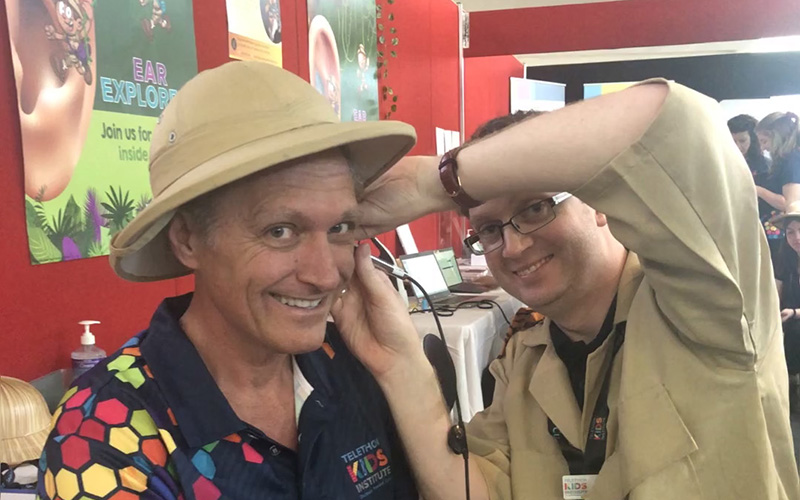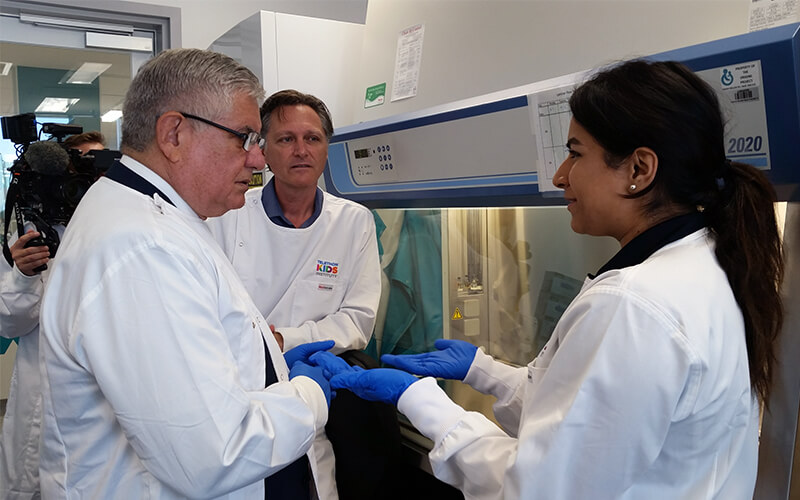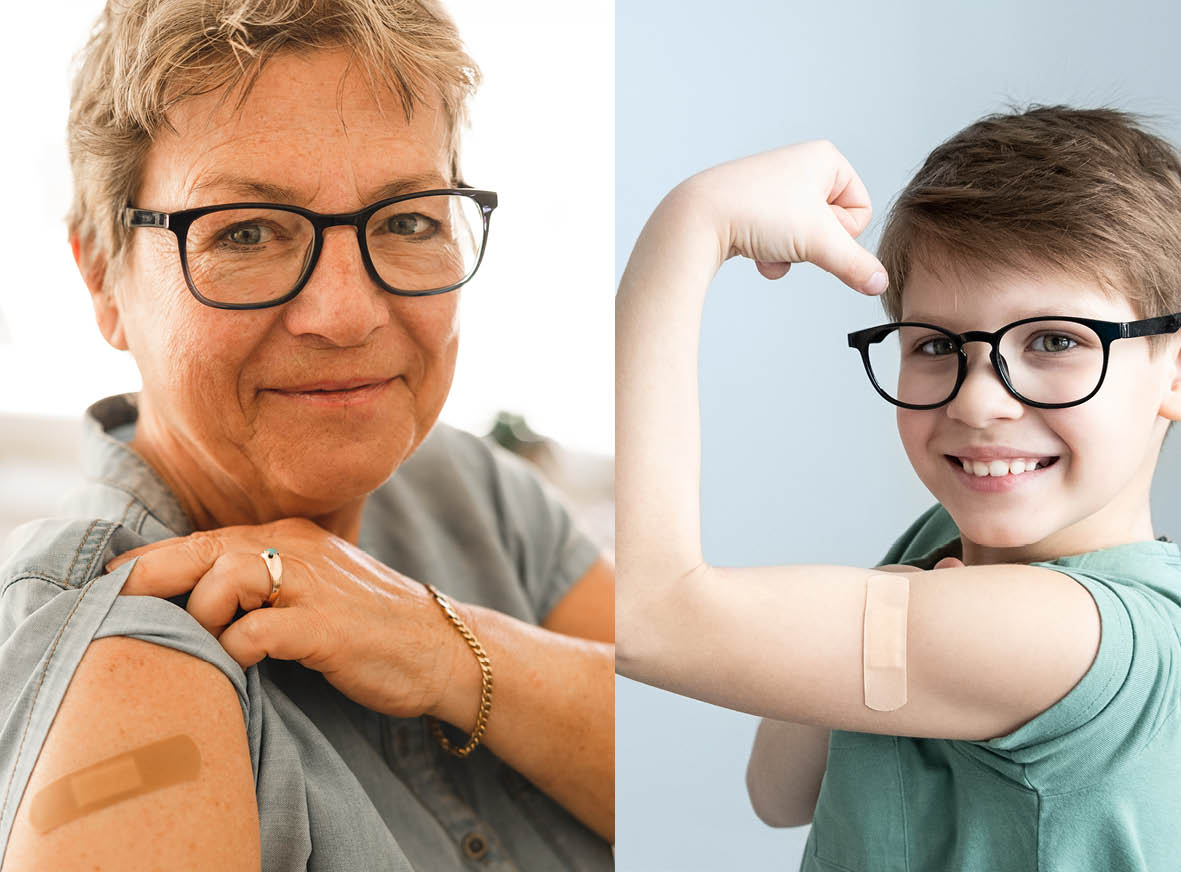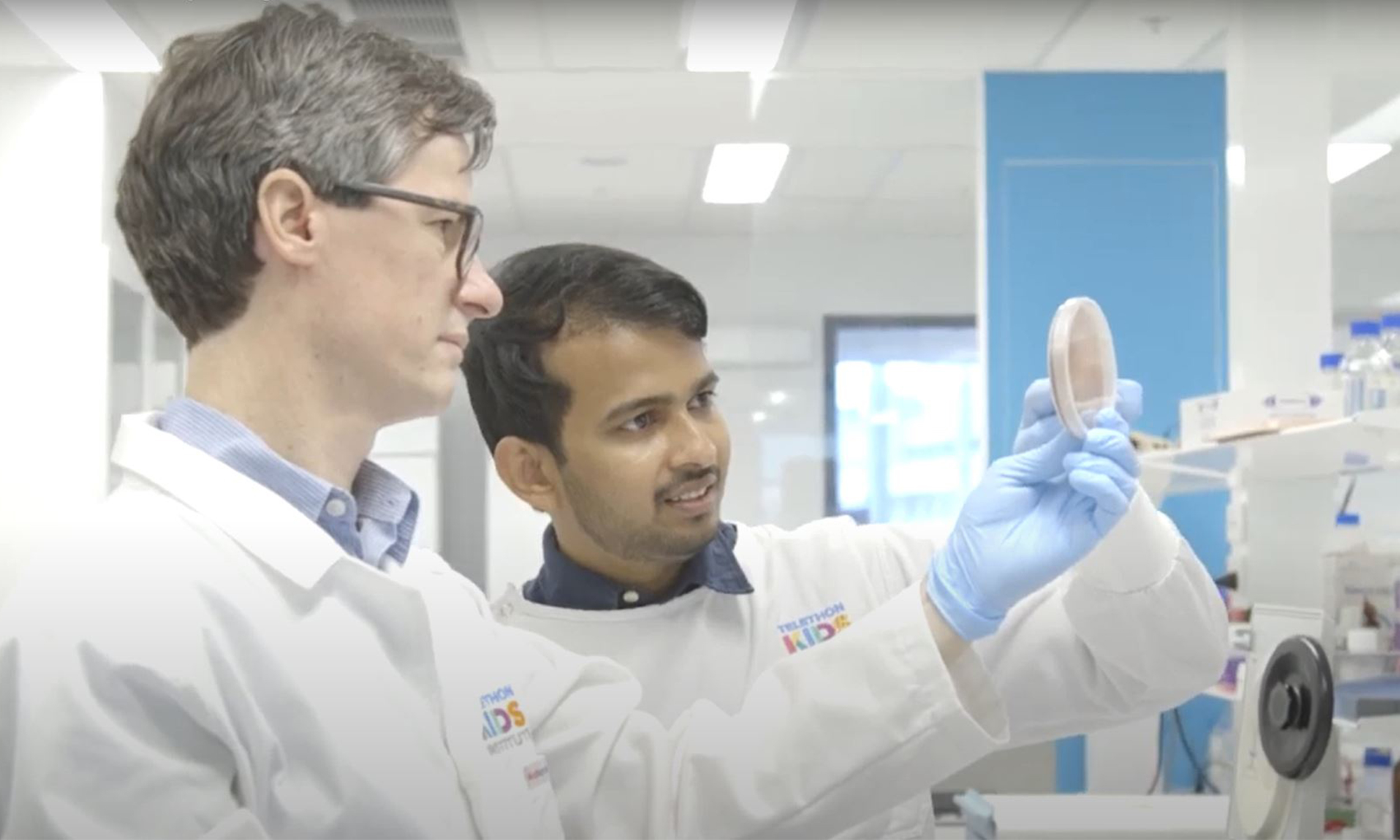Search

News & Events
Ear Explorers shows latest video technology helps ear disease diagnosisFindings from The Kids Research Institute Australia’s ‘Ear Explorers’ real-life research project undertaken as part of the 2019 Telethon weekend, found short videos were more helpful than photos when making a diagnosis.

News & Events
$35 million to develop vaccine with potential to save half a million lives per yearA vaccine to prevent rheumatic heart disease (RHD) and other life-threatening conditions caused by the common Strep A bacteria is a step closer thanks to funding announced by Minister for Indigenous Health, Hon Ken Wyatt AM, MP, in Perth today.

News & Events
The Kids Research Institute Australia launches Covid-19 booster research to inform Australia’s vaccine policyOptimising our national Covid-19 vaccine program could be one step closer thanks to new research now underway at The Kids Research Institute Australia investigating the most effective, long-term strategies for booster vaccinations.

News & Events
Point-of-care Strep A tests set to save lives in remote settingsInstant diagnosis and treatment of potentially life-threatening Strep A infections is now very close to reality across Australia’s remote and regional areas thanks to molecular point-of-care testing (POCT) that slashes result times from five days to just minutes.

News & Events
The Kids Research Institute Australia leads WA arm of Australia’s first needle-free COVID-19 vaccine studyEnrolments for Australia’s first needle-free, gene-based COVID-19 vaccine study – to be led in WA by The Kids Research Institute Australia – are open.

News & Events
Raine Foundation support for researchers from The KidsCongratulations to six researchers from The Kids Research Institute Australia, who will use valuable support from the Raine Medical Research Foundation’s 2024 grant round to undertake projects focused on improving the health and wellbeing of babies, children and young people.

News & Events
Australian-first study set to unveil major impact of ear disease on Aboriginal childrenResearchers from The Kids Research Institute Australia have been awarded a $1.1 million NHMRC ‘Targeted Call for Hearing Health’ grant to conduct the first ever study following Aboriginal babies from birth through to five years to uncover the true prevalence of middle ear infections and hearing loss.

News & Events
The Kids Research Institute Australia researchers discover new form of antimicrobial resistanceAustralian researchers have uncovered a new form of antimicrobial resistance (AMR) – undetectable using traditional laboratory testing methods – in a discovery set to challenge existing efforts to monitor and tackle one of the world’s greatest health threats.

News & Events
Universal protocols for Strep A surveillance set to transform research for world-first vaccineA global consortium of Group A Streptococcus (Strep A) researchers has launched a series of best practice surveillance protocols designed to unite international research efforts for a world-first Strep A vaccine.
RSV Update
